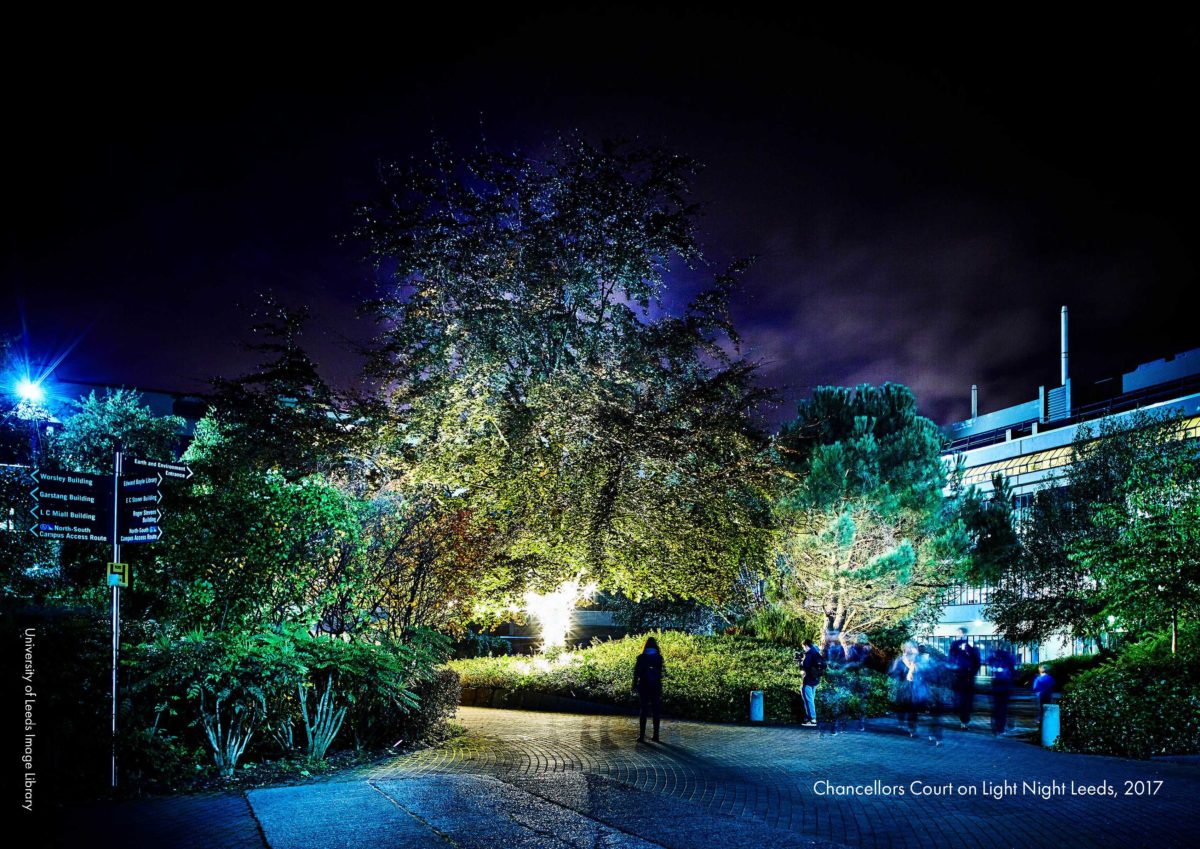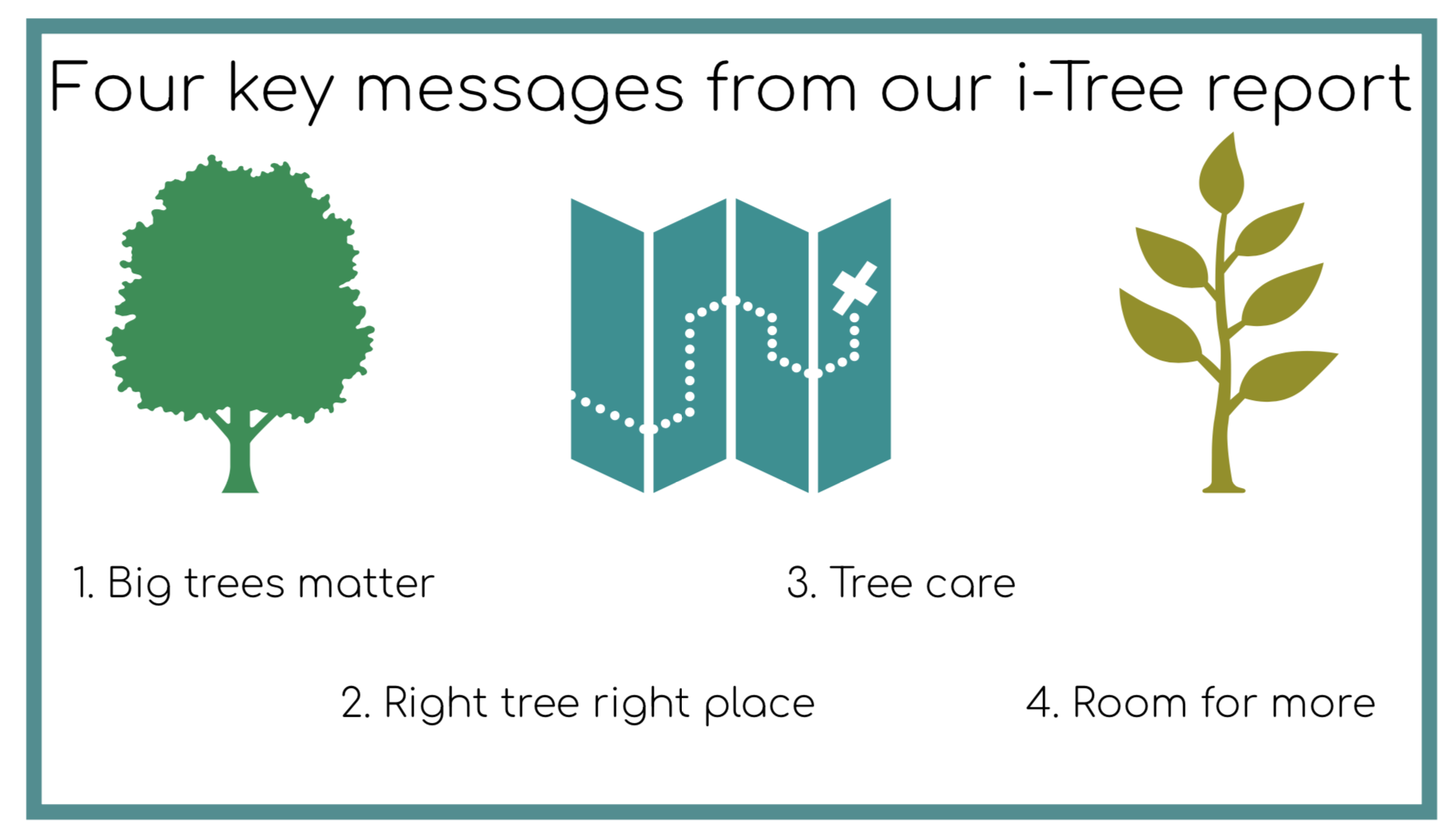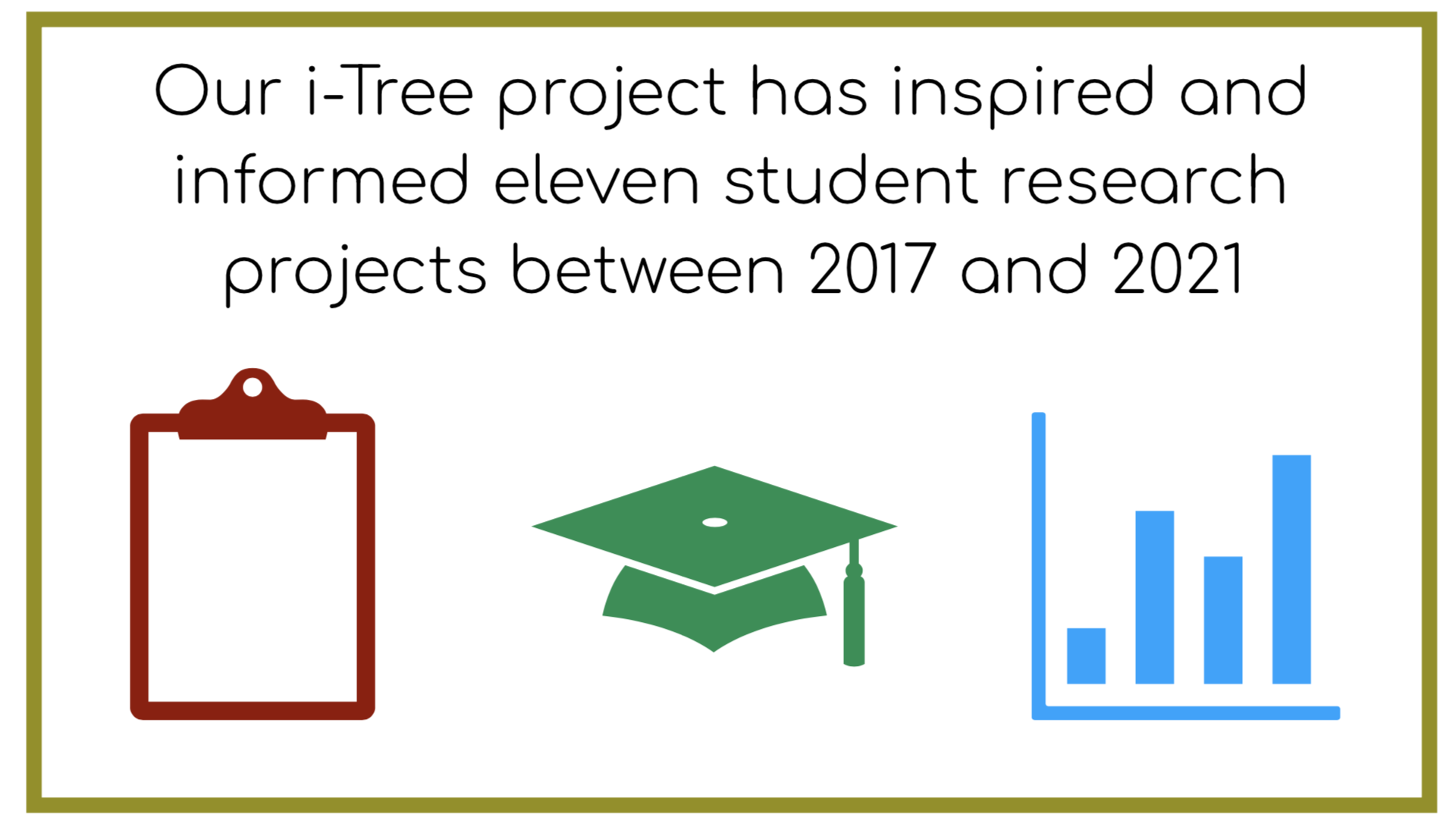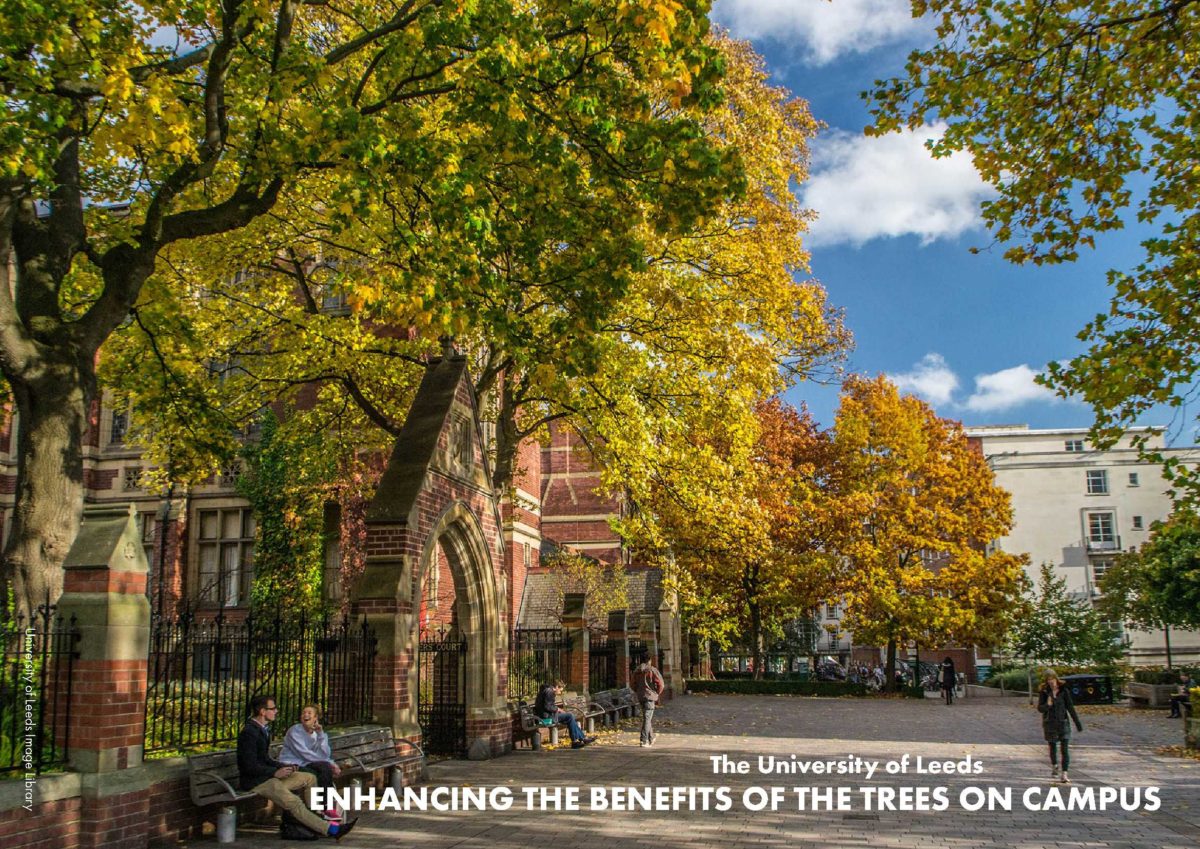University of Leeds campus i-Tree Eco study - a review of impact two years on
In July 2019, UBoC and LEAF published the University of Leeds i-Tree report, as part of the ongoing Leeds4Trees project which is exploring the value of trees and greenspaces across the city of Leeds. The project formed part of the Sustainability Service’s Living Lab initiative, to use the university campus as a test bed for collaborative research to deliver practical solutions for achieving sustainability. Two years on, we are reflecting on the impact that the research and the report have had, both on the work of UBoC and LEAF, and in the local community.

University of Leeds Image Library
During the summers of 2017 and 2018, more than 1400 trees were surveyed by volunteers, including staff and students, on the University of Leeds campus. Our main aim was to understand the contributions that urban trees make to the local environment and people, by estimating their delivery of ecosystem services. Through building an inventory of the trees, we were able to estimate the removal of carbon dioxide from the atmosphere and storage of carbon dioxide within each tree. Estimates of the removal of major air pollutants by the trees were also measured and we were able to estimate the surface water run-off avoided by having the trees on campus. The results of our analysis informed four key messages which we have continued to communicate:
- There is room for more – In 2019 the UK Committee on Climate Change outlined the role of large scale tree planting in helping us to achieve net-zero greenhouse gas emissions by the year 2050. Our report demonstrated the ability of urban trees to help mitigate climate change through the removal and storage of carbon dioxide. We have continued to use our i-Tree research to communicate the value of trees and to support private and public sector organisations in aligning their tree planting targets with the potential contribution the trees can make to climate change mitigation.
- Consider right tree right place - Our study highlighted the importance of planting trees in the right place. For trees to thrive and deliver the environmental benefits we observed in our study, we must ensure trees have good soil volumes, soil of good quality and access to water. Through our Leeds4Trees project, we encourage the conditions for tree planting to be carefully considered, including the choice of tree species, which should seek to build resilience in the urban forest and consider disease potential.
- Big trees matter - Our i-Tree report showcased the importance of large, mature trees in delivering environmental benefits. With the largest 7% of trees on campus delivering over one third of all environmental benefits, we recognised the significance of these trees. LEAF and UBoC have engaged in a further research partnership with Leeds City Council to ensure that mature trees are better protected in the urban environment, particularly where they are threatened by development activities. UBoC and LEAF champion the planting of new trees, but we also encourage the protection of the existing tree canopy to be prioritised.
- Tree care is vital - In light of the significant contribution that mature trees can make to the delivery of environmental benefits, providing appropriate tree care is essential for ensuring that trees develop healthily to achieve maturity. This includes ensuring tree roots are protected during construction projects, have sufficient soil volumes, and supporting trees throughout their establishment.

The campus i-Tree project has inspired and supported a range of student projects, from short summer placements to undergraduate and postgraduate dissertations. To date, the research has supported eleven student projects between 2017 and 2021. We welcome all students interested in working with our data or exploring the trees further to get in contact. Please send your enquiry to Anna Gugan: a.m.gugan@leeds.ac.uk. If you’d like to find out more about one of our student projects, read Hazel’s blog here.

Highlighting the important contribution of trees to climate change mitigation and improvements to the local environment has certainly caught the attention of many local and national organisations. UBoC and LEAF have developed strong research partnerships with Leeds City Council and the White Rose Forest, helping to develop appropriate tree planting strategies for the city and the White Rose Forest region. UBoC continues to provide scientific guidance to a range of local authorities and charities to inform the planting, management and restoration of trees and woodlands across the UK.
Here at the university, we have been working with the University’s estates team and the Sustainability Service to implement some of the recommendations of the report. Thom Cooper, Sustainability Manager, said “As part of the University's wider Sustainability Strategy, we are committed to embracing and enhancing nature across our estate to help manage climate impacts and increase social and biodiversity benefits. We are incorporating the recommendations of the iTree report into operational planning, the Biodiversity Standard and our campus Biodiversity Action Plan to ensure the resilience of our campus trees”.

From 2019 to 2021, we have been invited to present the research at a range of events, from academic lectures to green-infrastructure conferences and science festivals. In fact, we have presented our findings at more than 10 different events and explored the research further in a range of workshops. We were very excited to be invited by the BBC talk about our work on the Paul Hudson Weather Show in 2019. We also attended the Woodland Trust Street Tree Awards which brings together researchers, practitioners and community groups working to champion street trees and their place in our landscape.
Protecting trees in and around our local community is very important to us. The findings of our i-Tree report have enabled community groups to reach out to us to help them in protecting trees at risk of removal. UBoC and LEAF understand the complex issues that may lead to a tree needing to be removed, such as for people’s safety or for essential maintenance of infrastructure, but it is great when our information about the benefits provided by treescan help to protect them from unnecessary removal. UBoC teamed up with Love Trees York to help defend the York Minster trees from removal and we are really glad the plans were reconsidered to retain the trees.
With so much attention on trees at the moment, particularly as a nature-based solution to help us manage the effects of climate change, we are really happy to be part of a wide community of researchers and practitioners exploring ways to enhance the delivery of environmental benefits from trees in both rural and urban areas. Our research was highlighted in the recent Woodland Trust ‘State of the UK’s Woods and Trees’ report, which examined data availability for monitoring trees across all four nations and brought together the evidence base to inform planting, management and restoration of trees and woodlands. We further explored some of the ways trees can be valued in our Phase-2 i-Tree study, focused on the Middleton Park ward in Leeds.
We are really happy with how our i-Tree research has been received and the opportunities it has brought. Through the Leeds4Trees project we hope to continue to build partnerships with organisations to strengthen our understanding of trees and woodlands and inform sustainable management and planting of trees.
To find out more about the study, read here.
